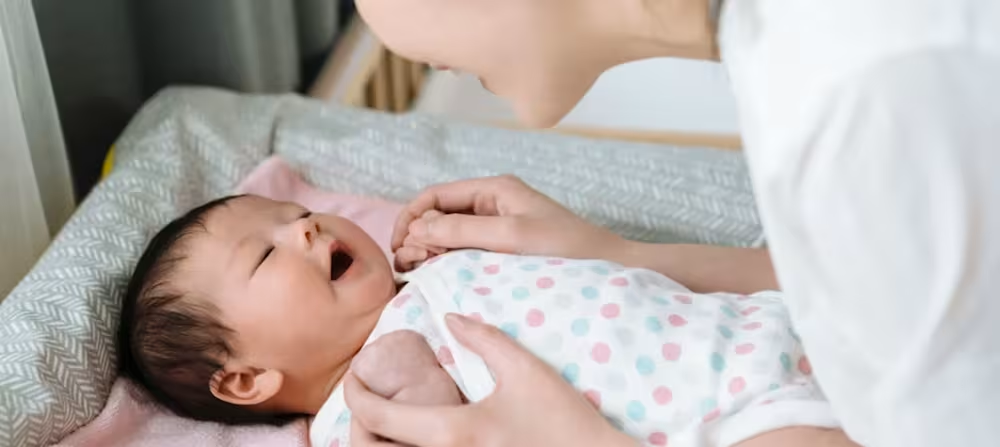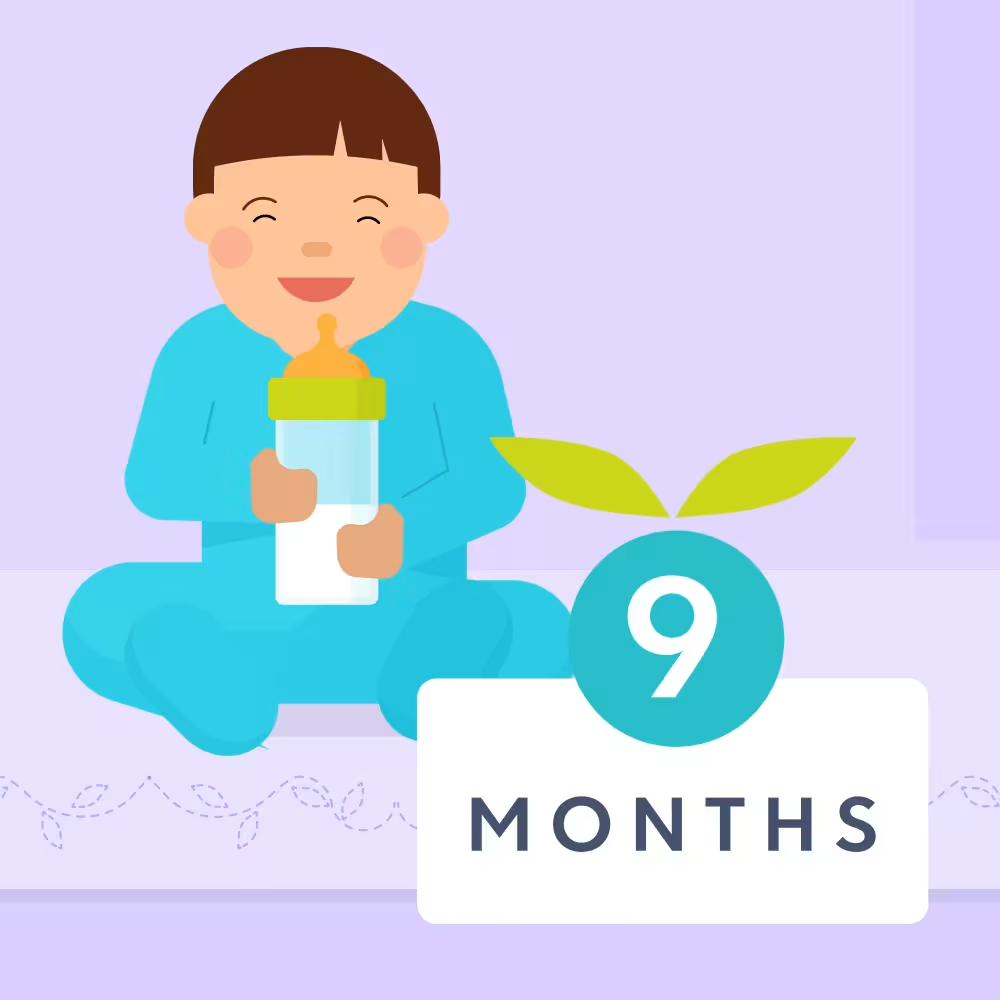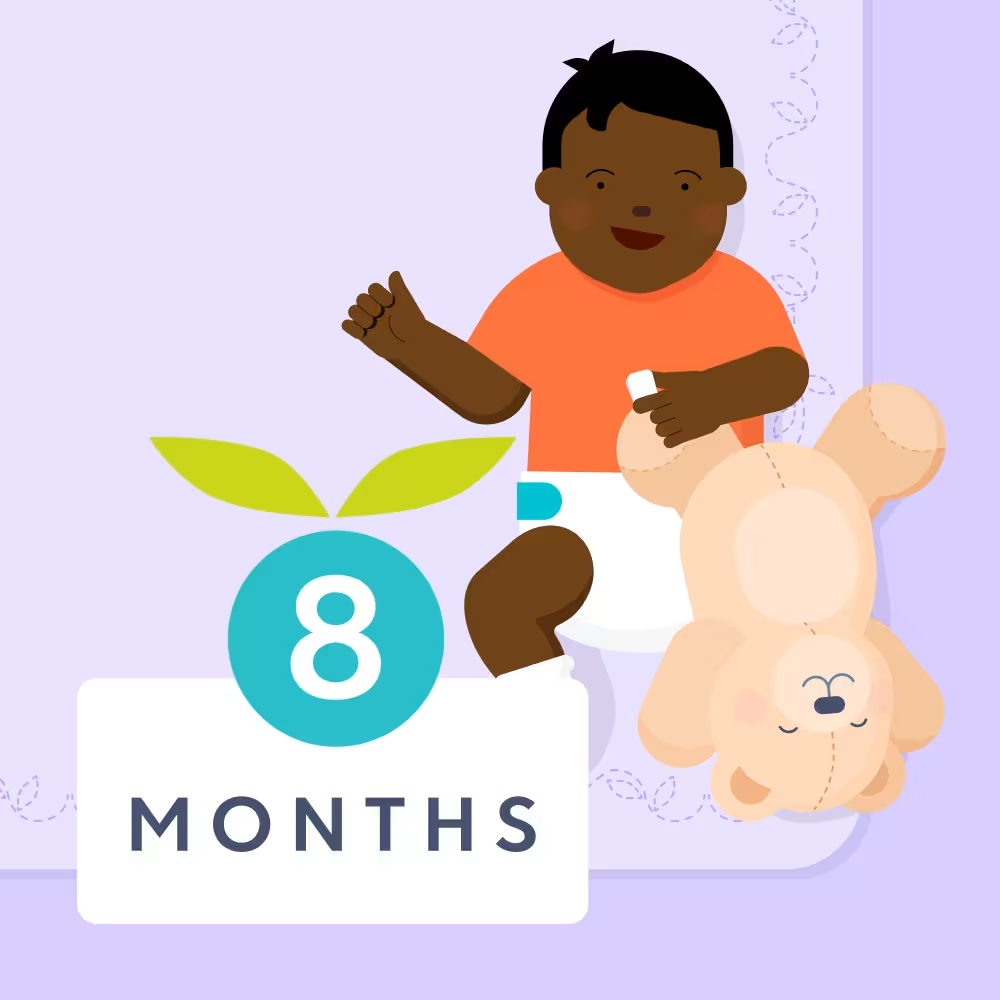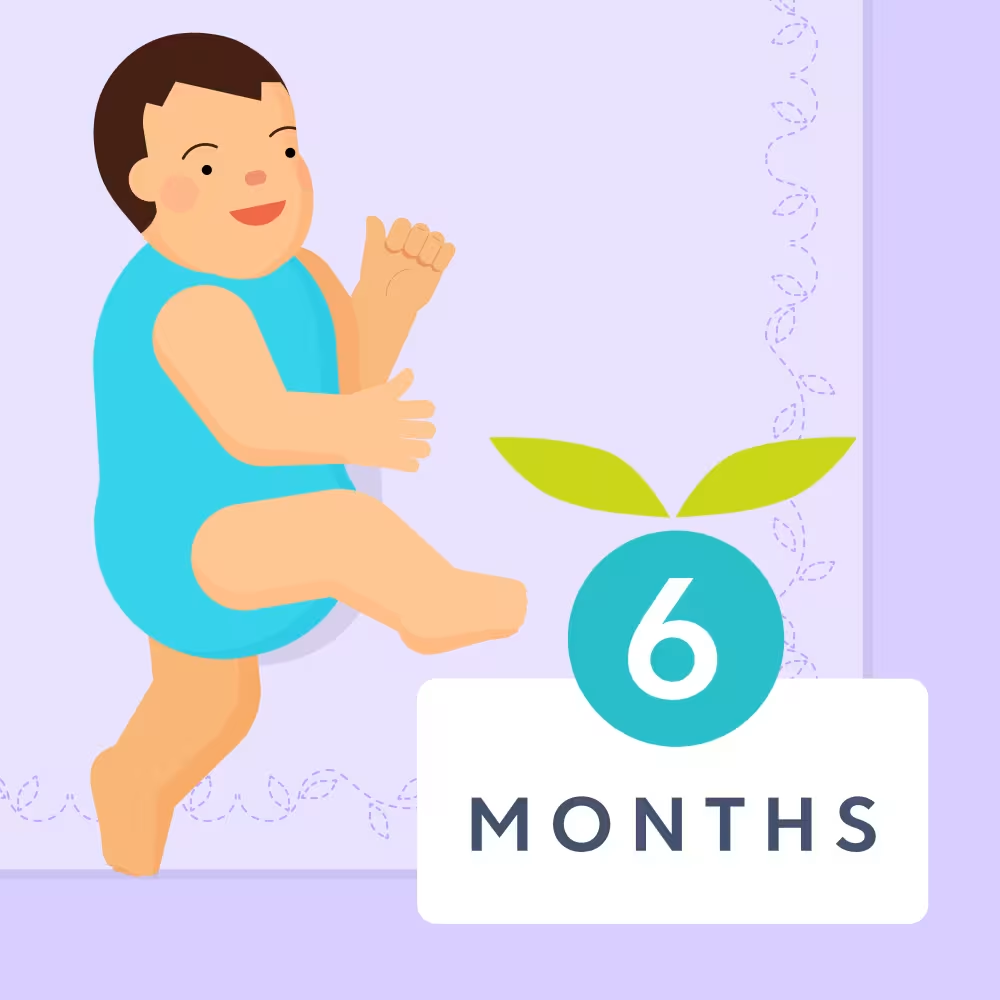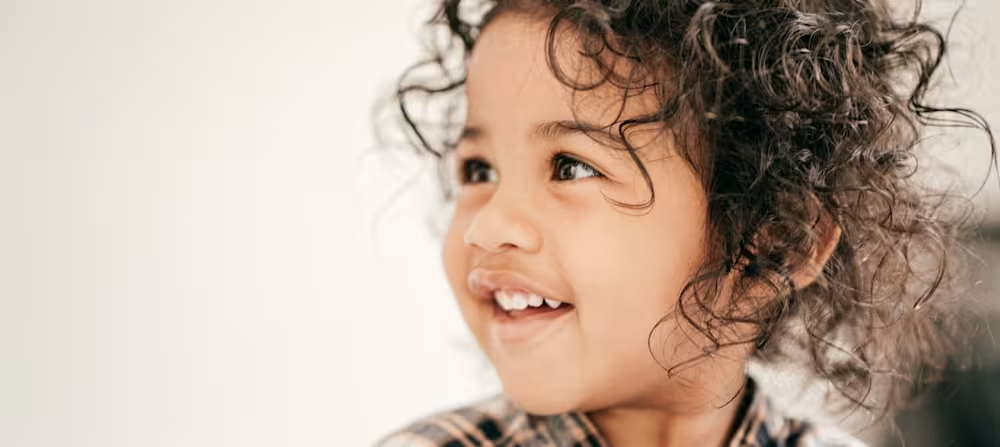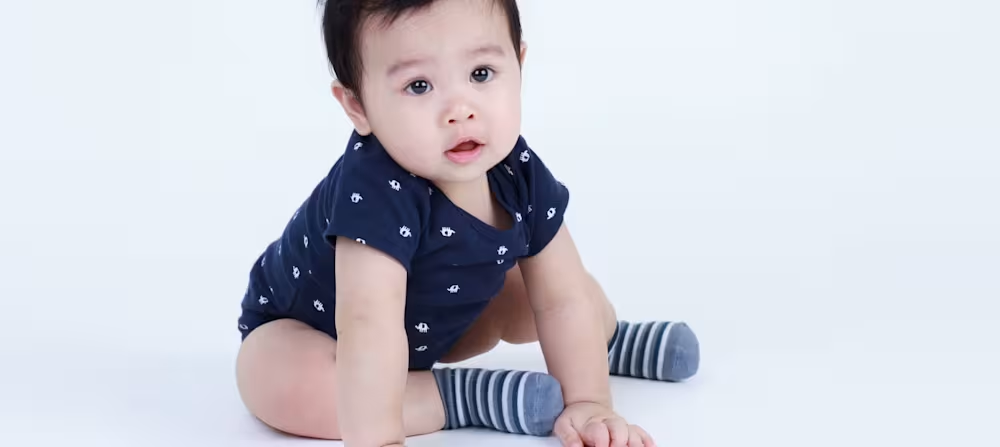When do babies laugh for the first time?
Updated Dec 29, 2025

One of the most emotionally rewarding experiences of early parenthood is getting to hear those first baby giggles. They’re not only adorable but they also help your little one express their contentment and increase the infant-caregiver bond.
In this article, we’ll help you set expectations around when you may expect your baby to giggle and laugh, give you tips for encouraging this skill, and let you know what comes next in terms of infant communication.
When do babies start laughing?
There’s a wide range of normal when it comes to developmental milestones like laughing. Not all infants will begin to chuckle or laugh at the same age and that’s expected! The timelines below may help you set realistic expectations about when your baby may laugh, but keep in mind that it may happen sooner or later.
When do babies giggle or chuckle?
By around 4 months [] your little bundle of joy may begin to chuckle or give you some giggles when you try to make them laugh. Young babies usually don’t fully laugh at this age.
When do babies laugh out loud?
Those first big laughs [] may happen around .
When do babies laugh in response to social games?
At around 9 months [], babies may give you a smile or laugh in response to social games like peekaboo — a moment you'll remember and cherish for years and years to come.
Why do babies laugh?
Social development:
When your little one laughs, you can’t help but smile and feel happy, right? It’s like the sweetest reward for all of the work you’re doing to take care of your little human around the clock. Studies have shown [] that laughter can help strengthen infant-caregiver attachment and these playful interactions are highly rewarding for parents and babies as well.
Communication development:
Babies learn to laugh long before they can say their first words. This early form of communication can help them express contentment, just like crying helps them express displeasure. It’s also one of the earliest forms of interactive communication and recognition of shared experiences. Babies often initiate laughter to get a positive response from their communication partner or laugh in response to something they enjoy. How cool is that?
Ways to encourage baby laughing?
Tip #1: Make silly sounds
Babies tend to love silly sounds and facial expressions. Get as goofy as you can and see how your little one reacts!
Tip #2: Play social games
Babies may not react to social games like peekaboo until closer to 9 months old [], but you can still give it a shot! Even if peekaboo doesn’t elicit a laugh, repetition and hearing new words [] can help pave the way for future communication development.
Tip #3: Blow raspberries
When you blow a raspberry on your little one’s tummy, the combination of light touch, a silly sound, and the sensation of air on their belly may be enough to elicit a laugh. Keep in mind that babies have different tolerance levels for physical play, so it’s always best to watch for cues to make sure they’re comfortable and enjoying it. You could also try blowing raspberries in the air to see if you get a reaction.
Baby not laughing: What to do
Babies all grow and develop at different rates. If your baby isn’t chuckling by around 4 months or fully laughing by 6 months, they may just need a little extra time to meet these milestones. However, you know your baby best and if you have any concerns about their development, it’s best to consult their pediatrician.
Lack of laughter can sometimes indicate hearing issues [], so it may be worth mentioning to your child’s doctor around 6 months — especially if they don’t respond consistently to sounds or aren’t smiling or vocalizing when spoken to.
Laughing unlocked: What's the next step?
Laughing is an early form of infant communication and helps pave the way for future speech and language milestones. According to the American Speech-Language-Hearing Association [], here’s what you may expect around the age your baby starts laughing around 4 - 6 months and then looking forward to 7 - 9 months.
4 - 6 month communication milestones:
Responds to facial expressions
Follows objects with their eyes
Vocalizes vowel sounds, sometimes combined with a consonant (“daaaaa” or “uuuuummm)
Vocalizes during play or with objects in their mouth
7 - 9 month communication milestones:
Looks when you call their name
Babbles a string of sounds like “bababa” or “mamama”
Raises arms to be picked up
Recognizes the names of some people and objects
Looks for caregivers when upset
Takeaway
Baby’s laughter is a form of baby-caregiver bonding and attachment and is also an early form of communication. It’s a form of baby-caregiver bonding and attachment and is also an early form of communication. Little ones can use laughter to express enjoyment just like they cry when they’re upset.
Being silly and making funny noises (like blowing raspberries) can encourage your little one’s laughter.
Babies grow and develop at different rates, so don’t fret if they haven’t reached this milestone at exactly 6 months old! However, if your child isn’t laughing by around this age, consider bringing this up with their pediatrician. Sometimes not laughing out loud can be a sign of hearing problems.
Share article:
Note: The content on this site is for informational purposes only and should not replace medical advice from your doctor, pediatrician, or medical professional. If you have questions or concerns, you should contact a medical professional.
7 Sources
Share article:
